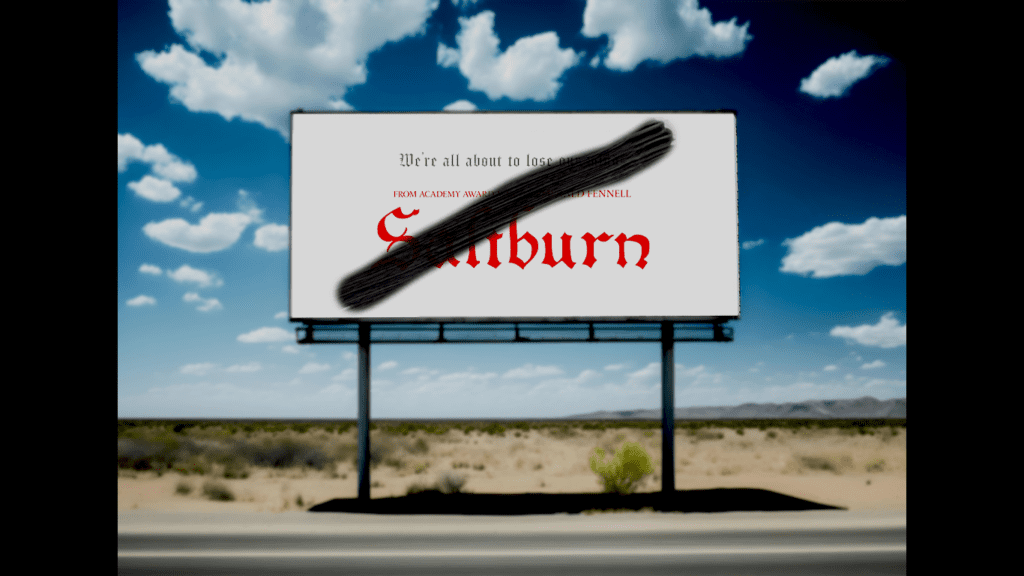
Winter is always a strange time on the film calendar.
Mainly, my January movie watching consisted of catching up on missed movies from 2023 and a prolonged obsession with the films of Michael Mann. However, I did have another recurring theme regarding conversations about movies this month: everyone watched Saltburn.
I missed it in theaters, as I was in the middle of prepping for my Top-10 of 2023 list and had a sneaking suspicion it wouldn’t warrant a mention (I was correct), but over a month and a half, I think every single person I know watched this movie. Here I am, wanting to talk about Killers of the Flower Moon and Anatomy of a Fall, and the only movie everyone saw in the last month was Emerald Fennell’s mediocre follow-up to her pretty-good-until-the-ending debut film Promising Young Woman.
The takes came hard and fast. Saltburn was “a stupid movie from a bad writer,” “The Talented Mr. Ripley for Gen Z,” (For the record, I’m in the “everyone should just watch The Talented Mr. Ripley” crowd), and “wildly entertaining and messed up.” Eventually, I caved and watched. At first, I thought it was a case of people having seen too few movies, which I admit is a pretentious thought, but a question sprang to my head when I thought about it some more. While Saltburn entertaining despite there being nothing under the surface, why do so many people want to talk about this movie? Especially when better, Oscar-contending movies like Poor Things, May December, and American Fiction are equally audacious in their storytelling.
The answer, at first, seems obvious. Saltburn is a movie made by an exciting millennial filmmaker starring the two hottest under-30 actors in the industry, along with reliably great veteran co-stars, but so did Sofia Coppola’s Priscilla, with an equally good-looking and star-laden cast (Jacob Elordi is even the hot object of obsession in both), basically disappeared from the zeitgeist following its theatrical run. Part of this can be chalked up to Saltburn being almost instantly dropped on Amazon Prime, the only streaming service everyone has other than Netflix. It’s much easier to convince someone to watch a “crazy” movie when all they have to do is turn on the TV.
Ultimately, it comes down to two factors. First, Saltburn is accesibly compelling. When I say accesibly compelling, I mean that the movie is entertaining. Forget the strange turns, 1.37:1 aspect ratio, and twist ending, Saltburn is fun to watch. Emerald Fennell is a talented visual filmmaker who can pace a movie. Watching the family lounge around Saltburn saying outlandish things while Barry Keoghan goes full goblin mode on a shower drain is inherently entertaining. Now, pair that with the strange filmmaking flourishes, and you have a recipe for a movie that seems more profound and more complex than it is. Why is the film in the academy ratio? To make you think it’s important. Why set the film in 2006? This plot doesn’t work in a post-Facebook world. Why include poetic opening and closing narration that spoils the movie if you give it more than one glance? To try and convince the audience, this is a #deep movie.
The second factor is that it’s considered an “original” work and we’ve reached a moment where being seen as “Oscar bait” kills films.
While not as outlandish as Saltburn, Maestro is much clearer about what it wants to say and is on an equal level of filmmaking skill. They’re even shot in the same 1.37:1 aspect ratio to convince people they’re important. But because Maestro is a biopic, I believe many people just see it as boring Oscar bait. That’s why Priscilla, disappeared. They’re not ironic enough for modern audiences. They’re sincere biopics, which aren’t cool anymore.
Some of the Oscar contenders could learn a thing or two from Saltburn. American Fiction had a transgressive point, which is probably why it didn’t catch hold. Cord Jefferson’s directorial debut simply is not accessible enough. May December has pacing issues. Not entertaining enough. Poor Things is accessible, audacious, and entertaining, and while it didn’t quite work for me, this is the movie people should be talking about instead of Saltburn. Unfortunately, Poor Things didn’t learn from Saltburn and is next to impossible to watch outside of Los Angeles and New York.
So here we are, one month from the Oscars with the deepest roster in years, and the internet only wants to talk about Saltburn and a perceived Barbie snub, a movie that got the second most nominations of any movie this year. Oh well, there’s always next year.
*Looks at the 2024 calendar*
*sighs*
Tyler Carcara is a filmmaker living in Los Angeles. He makes a weekly podcast where he, and his two cohosts, pitch podcasts! Trust me you’ll want to give it a listen. You can find it on Spotify here or by searching “The Podcast Podcast Podcast”.





